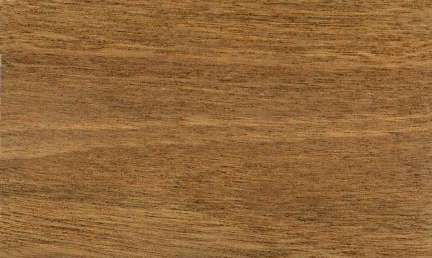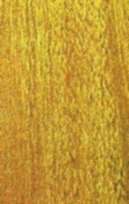 
PNG Vitex (Vitex cofassus)
Family: Verbenaceae
Common names: Afas, Ahsang, Anoano, Asang bitum, Bai-ah, Banafat, Banohoera, Beso, Biti, Bitum, Boepasa, Chan vit, Chan-vit, Fata, Garamut, Gawasa, Gofassa, Gupasa, Haleban, Hasara, Hata, Ka-ar, Katonde, Katondeng, Kulim papa, Kyeto, Leban, Milla, Molave, New Guinea teak, New Guinea vitex, Pasal, Solomons vitex, Taruma, Tato-o, Teen-nok, Vada, Vasa, Vasara, Vata, Vitex
Distributed in: Indonesia, Malaysia, Myanmar, Papua New Guinea, Philippines, Solomon Islands, Vietnam (Oceania and S.E. Asia)
Distribution overview: The genus Vitex is very well represented throughout the Indo-Malayan region, including the Western Pacific Islands. The growth range of V. cofassus includes Papua New Guinea.
Common uses: Agricultural implements, Bearings & bushings, Boat building (general), Boat building, Boat building: framing, Boat building: planking, Bridge beams, Bridge construction, Bridge joists, Building construction, Building materials, Bushing blocks, Cabin construction, Cabinetmaking, Canoes, Carvings, Chairs, Chests, Concealed parts (Furniture), Construction, Decks, Desks, Dining-room furniture, Domestic flooring, Dowell pins, Dowells, Drawer sides, Factory construction, Farm vehicles, Fine furniture, Floor lamps, Flooring, Flooring: industrial heavy traffic, Foundation posts, Furniture , Furniture components, Furniture squares or stock, Furniture, Hatracks, Heavy construction, Interior construction, Joinery, Kitchen cabinets, Lifeboats, Light construction, Living-room suites, Machinery parts, Mine timbers, Musical instruments: percussion, Oars, Office furniture, Piling, Plywood, Posts, Railroad ties, Shipbuilding, Sills, Stairworks, Turnery, Veneer
Product sources: The species is one of the major sources of timber in Papua New Guinea.
Environment profile: Status has not been officially assessed
Tree size: Trunk diameter is 150-200 cm
Colors: the heart isRed, Yellow to golden-yellow to orangeand the sapwoodWhite to yellow, Yellow.The grain isStraight, the textureMedium to coarseand the lusterSlightly lustrous
Natural durability: Susceptible to marine borer attack, Very durable
Odor: No specific smell or taste
Sometimes leathery odor
Kiln Schedules: Kiln Drying Rate (in days) is fairly rapid
Kiln Drying Rate: Rapid (<10 days for boards < 32 mm, to <30 days for boards >= 63 mm)
Drying Defects: Moderate end spitting, Slight twist/warp
Ease of Drying: Slowly
Tree Identification: Bole/stem form is misshapen
Comments: General finishing qualities are rated as good
Blunting Effect: Moderate
Boring: Satisfactory properties
Carving: Fairly Easy to Very Easy
Cutting Resistance: Easy to saw
Gluing: Moderate gluing properties
Mortising: Satisfactory mortising properties
Moulding: Good finishing
Movement in Service: Good finishing
Nailing: Good nailing properties, Holds satisfactorily
Planing: Yields a clean surface
Resistance to Impregnation: Sapwood is moderately resistant
Response to hand tools: Responds Readily
Routing recessing: Routing rated as fair
Sanding: Satisfactory sanding results
Steam bending: Good
Screwing: Good screwing properties, Screwing yields satisfactory results; Turning: Turns with moderate ease
Painting: Satisfactory; Polishing: Fair to Good; Staining: Very Good to Excellent; Varnishing: Satisfactory
;
- Numerical data Metric
- Numerical data English
- Strength properties
- References
 |
 |
 |
 |
| Item |
Green |
Dry |
Metric |
| Specific Gravity |
0,6 |
0,67 |
|
| Density |
|
753 |
kg/m3 |
| Bending Strength |
759 |
1100 |
kg/cm2 |
| Crushing Strength |
|
109 |
kg/cm2 |
| Hardness |
|
514 |
kg |
| Impact Strength |
|
|
cm |
| Shearing Strength |
|
159 |
kg/cm2 |
| Stiffness |
113 |
134 |
1000 kg/cm2 |
| Tangential Shrinkage |
|
|
% |
| Radial Shrinkage |
35 |
|
% |
| Weight |
737 |
544 |
kg/m3 |
| Maximum Load |
|
|
cm-kg/cm3 |
| Toughness |
|
118 |
cm-kg |
| Static Bending |
559 |
778 |
kg/cm2 |
|
 |  |  |  | | Item | Green | Dry | English | | Bending Strength | 10809 | 15652 | psi | | Crushing Strength | | 1553 | psi | | Density | | 47 | lbs/ft3 | | Hardness | | 1135 | lbs | | Maximum Crushing Strength | 6440 | 8983 | psi | | Shearing Strength | | 2271 | psi | | Static Bending | 7958 | 11074 | psi | | Stiffness | 1614 | 1912 | 1000 psi | | Toughness | | 103 | inch-lbs | | Specific Gravity | 0.6 | 0.67 | | | Weight | 46 | 34 | lbs/ft3 | | Radial Shrinkage | 3.5 | | % | | Tangential Shrinkage | 6 | | % | |
Density (dry weight) = 38-45 lbs/cu. ft. 0
Density (dry weight) = 46-52 lbs/cu. ft. 0
Shrinkage, Radial = very small
Shrinkage, Tangential = small
Shearing strength (parallel to grain) = medium
Crushing strength = high
Shrinkage, Tangential = moderate
Bending strength (MOR) = medium
Hardness (side grain) = soft
Density (dry weight) = 53-60 lbs/cu. ft
Shearing strength (parallel to grain) = low
Crushing strength = medium
Bending strength (MOR) = low
Bending strength (MOR) = high
Bolza, E. and N.H. Kloot. 1966. The Mechanical Properties of 81 New Guinea Timbers. Division of Forest Products Technological Paper No. 41, Commonwealth Scientific and Industrial Organization, Melbourne, Australia.Bolza, E., Kloot, N.H.,1976,The Mechanical Properties of 81 New Guinea Timbers,C.S.I.R.O. Div. Building Res. Tec.Paper (2nd series) 11Bolza, E.,1975,Properties and Uses of 175 Timber Species from Papua New Guinea and West,Irian,C.S.I.R.O. Div. Building Research Report,no.34Brown, W.H.,1978,Timbers of the World, No. 8 Australasia,TRADA, Red Booklet SeriesBudgen, B.,1981,Shrinkage and density of some Australian and South-East Asian Timbers,C.S.I.R.O. Div. building Res. Tech Paper(2nd Series) No.38Chudnoff, M.,1984,Tropical Timbers of the World,U.S.A. Department of Agriculture, Forest Service, Forest Products,Laboratory, Madison.Da Costa, E.W.B., Osborne, L.D.,1967,Comparative decay resistance of 26 New Guinea timber species in,accelerated laboratory tests,Comm. Forestry Review 46(1) pp63-74Eddowes, P.J. 1977. Commercial Timbers of Papua New Guinea - Their Properties and Uses. Forest Products Research Center, Office of Forests, Department of Primary Industry, Papua New Guinea.Eddowes, P.J.,1977,Commercial Timbers of Papua New Guinea: Their Properties and Uses,Hebano Press, Port Moresby, Papua New GuineaKeating, W.G., Bolza, E.,1982,Characteristics properties and uses of timbers. South East Asia, Northern,Australia and the Pacific,C.S.I.R.O. Div. Chemical Technology,Inkata Press,1Kraemer, J.H.,1951,Trees of the Western Pacific Region,West Lafayette, Indiana U.S.A.Papua New Guinea Department of Forests,1972,New Horizons,Forestry in Papua New Guinea,Jacaranda Press PTY Ltd, BrisbanePleydell, G.J.,1970,Timbers of the British Solomon Islands,United Africa Company (Timber) Ltd, LondonSolomon Islands,1976,Solomon Islands Timbers - Major Species,For Div. Min. Nat. Resources, Honiara, Timber Booklet 1The Ecological Trading Company Limited (ETC, Newcastle upon Tyre, United Kingdom.
|









